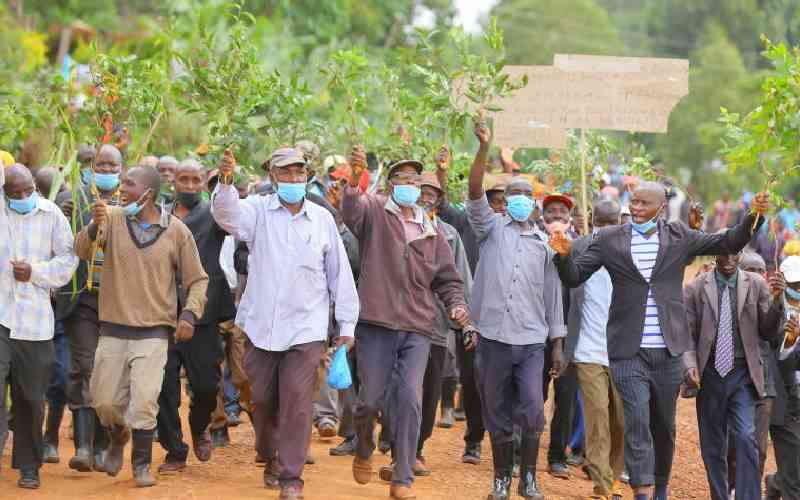By Nicholas Waitathu
KENYA: The three-year trade war between Kenya and South Africa over avocado export ban by the latter due to pest infestation is far from over.
In 2010, local avocadoes were banned from entering South Africa after the fruits were found to be infected by a foreign pest –fruit fly suspected to be from Sri Lanka.
South Africa imposed an indefinite ban denying local farmers more than Sh120 million every year they used to earn from avocado exports.
Kenyan authorities complain that South Africa is adamant to lift the ban even after implementing agreed pest management practices to tame the destructive pest.
“We have been negotiating with the South Africa government since 2010 how the ban can be lifted but so far no meaningful results have been realised,” said Kenya Plant Health Inspectorate Services (KEPHIS) managing director Dr James Onsando. Even though South Africa is a relatively small market compared to other global markets where local fruits are exported, Kenya authorities fear that the ban has had a potentially negative effect from other countries.
The fruit fly species was first discovered in Kenya in 2003 having originated from Sri Lanka and since then it has also been reported within the continent in more than 24 countries including South Africa. Others countries in Africa where the pest has been reported are Botswana, Sierra Leone, Swaziland, Togo, Mali, Nigeria, Uganda, Malawi and Zambia.
Fresh Produce and Exporters Association of Kenya (FPEAK) chief executive Dr Stephen Mbithi says apart from avocadoes, the pest also attacks mangoes, guavas, citrus, papaya, tomato, banana, cashew nuts, peeper, pears, melons and other tropical fruits.
Mbithi laments that the avocado ban has denied local farmers an opportunity to grow their fruit business as well as to create more jobs and also for the government to earn foreign exchange. He added that the fruit fly does not affect human beings though it compromises the quality of fruits, which ends up rotting.
Onsando says if the trade stalemate is not resolved quickly other countries might use it as an excuse to impose ban on Kenyan fruits exported to their territories. “We have even agreed on a number of initiatives, for example, a protocol how to tame the pest and we have so far implemented it, however the SA authorities are still adamant to remove the ban,” Onsando said in an interview with Business Beat. Kenya is an equal competitor to South Africa as both export a lot of their fresh produce to the European market.
Onsando explained that the protocol developed sought to enhance management of the fruit fly and address issues on agronomy, pests and disease control as well as post-harvest management.
“It was on the basis of the successful implementation of the protocol that South Africa was to lift the ban. We have almost completed the programme but officials from SA are yet to evaluate the progress so that the ban can be lifted,” he added.
Stay informed. Subscribe to our newsletter
 The Standard Group Plc is a
multi-media organization with investments in media platforms spanning newspaper
print operations, television, radio broadcasting, digital and online services. The
Standard Group is recognized as a leading multi-media house in Kenya with a key
influence in matters of national and international interest.
The Standard Group Plc is a
multi-media organization with investments in media platforms spanning newspaper
print operations, television, radio broadcasting, digital and online services. The
Standard Group is recognized as a leading multi-media house in Kenya with a key
influence in matters of national and international interest.
 The Standard Group Plc is a
multi-media organization with investments in media platforms spanning newspaper
print operations, television, radio broadcasting, digital and online services. The
Standard Group is recognized as a leading multi-media house in Kenya with a key
influence in matters of national and international interest.
The Standard Group Plc is a
multi-media organization with investments in media platforms spanning newspaper
print operations, television, radio broadcasting, digital and online services. The
Standard Group is recognized as a leading multi-media house in Kenya with a key
influence in matters of national and international interest.









